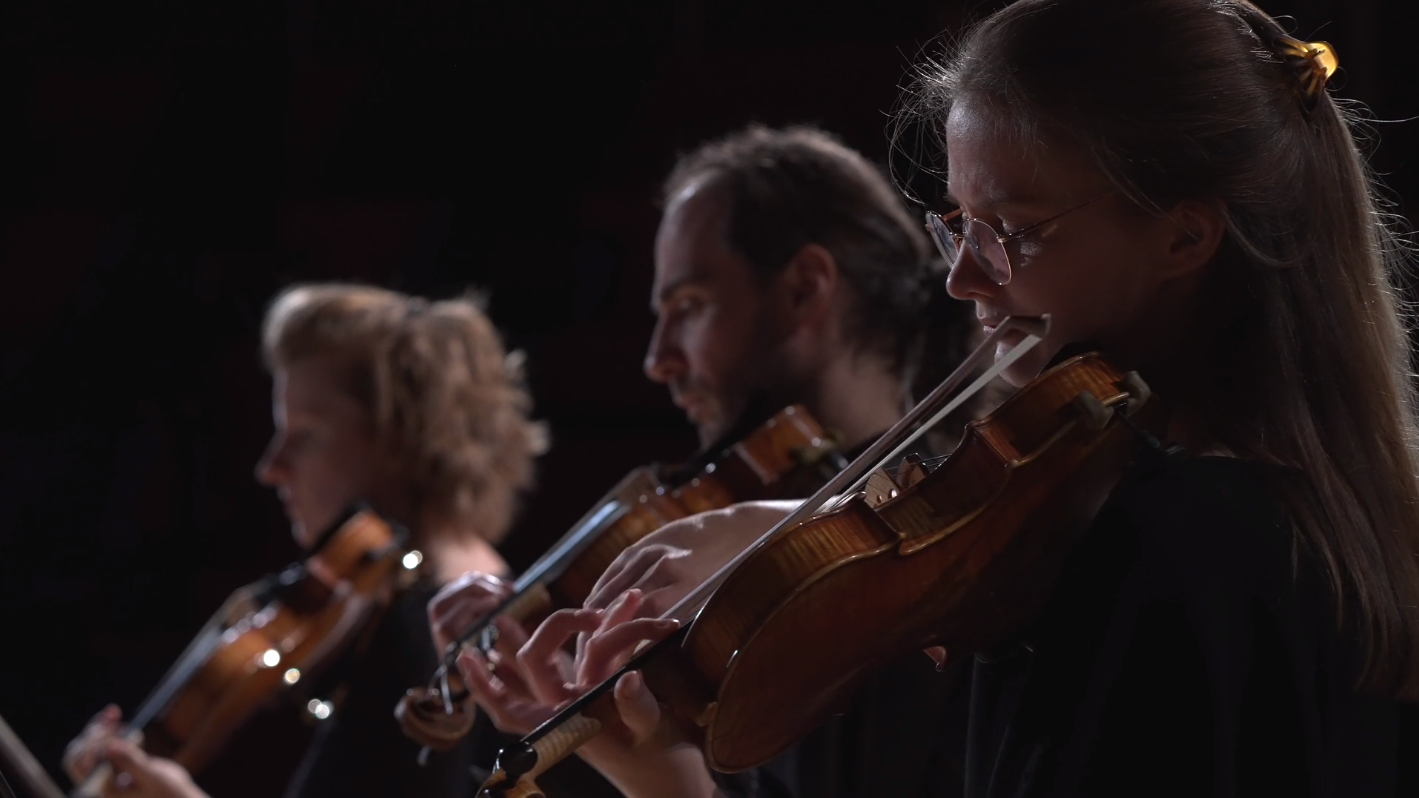
Ustvolskaya Octet
Ensemble Resonanz & Alexander Melnikov
Musical Performance Quintet & Chamber Ensemble 0“One must imagine the Iron Curtain as something akin to the sound and effect of this music”—reportedly, this Igor Stravinsky’s reaction after hearing Galina Ustvolskaya’s Octet. The music of this enigmatic composer, who was born in 1919 in Saint Petersburg (or Petrograd at the time) and died there in 2006, reflects the sense of imprisonment within the Soviet system that had turned the arts into a state affair. Only 25 compositions passed her relentless self-criticism and were entered into her official catalogue of works. The Octet with its unusual orchestration for two oboes, four violins, piano, and timpani consists of five short movements alternating between slow and fast tempi and running into one another without a break. At the Pierre Boulez Saal, this work was performed in the 2019–20 season as part of a concert series commemorating the composer’s 100th birthday. Due to the pandemic, only some of these concerts could be presented to a live audience.
Galina Ustvolskaya (1919–2006)
Octet for Two Oboes, Four Violins, Timpani, and Piano (1950)
I. Quarter notes = 66 –
II. Quarter notes = 108 –
III. Quarter notes = 69 –
IV. Quarter notes = 132 –
V. Quarter notes = 48
Alexander Melnikov, Piano
Ensemble Resonanz
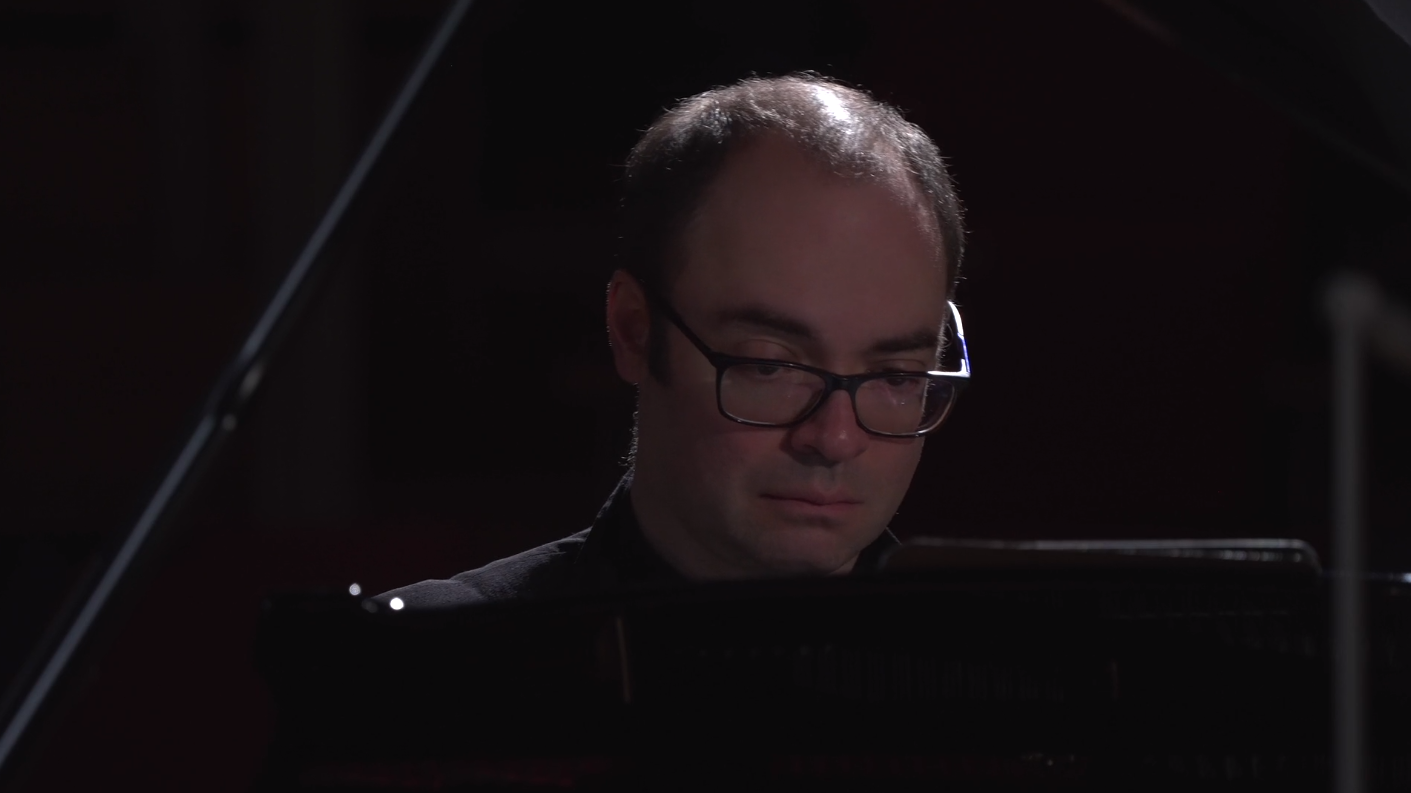
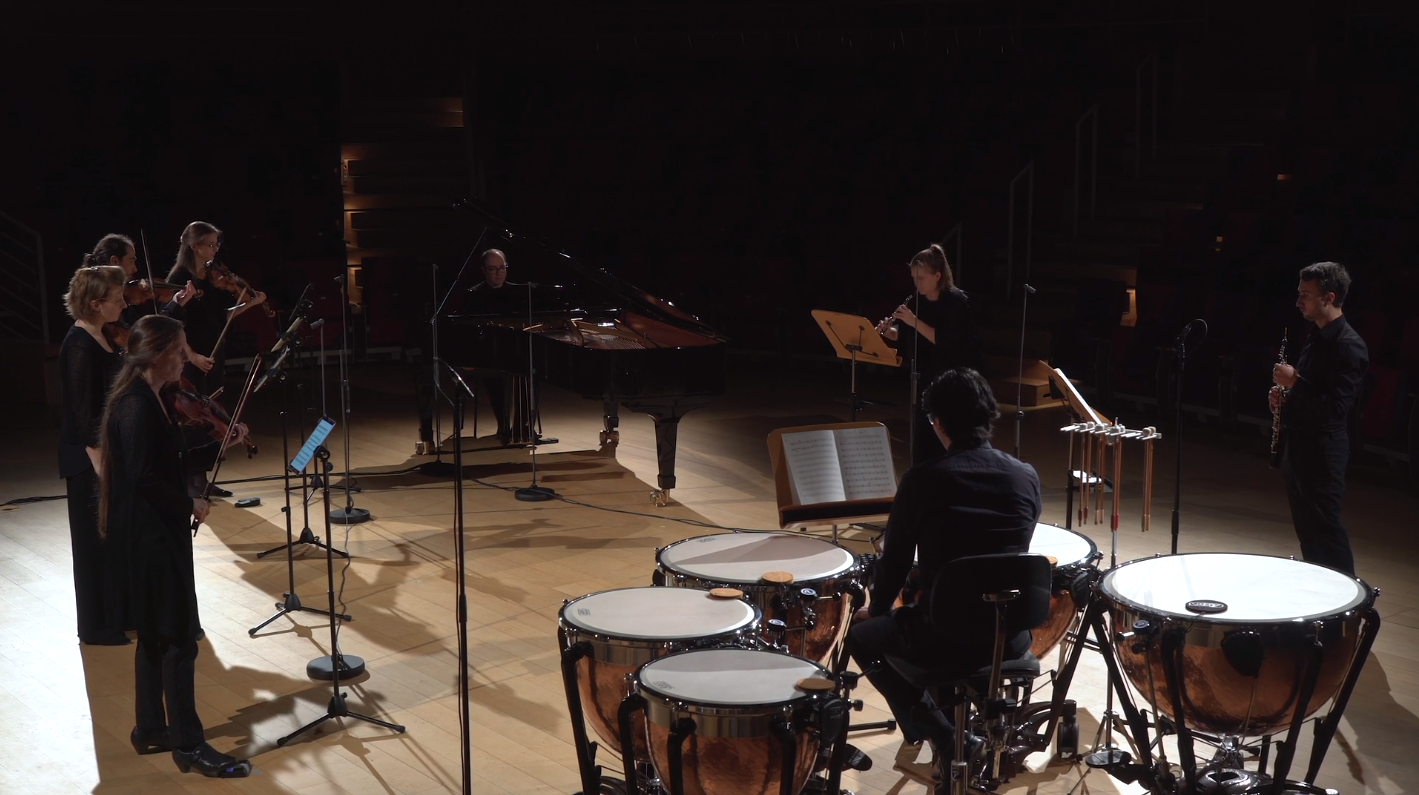
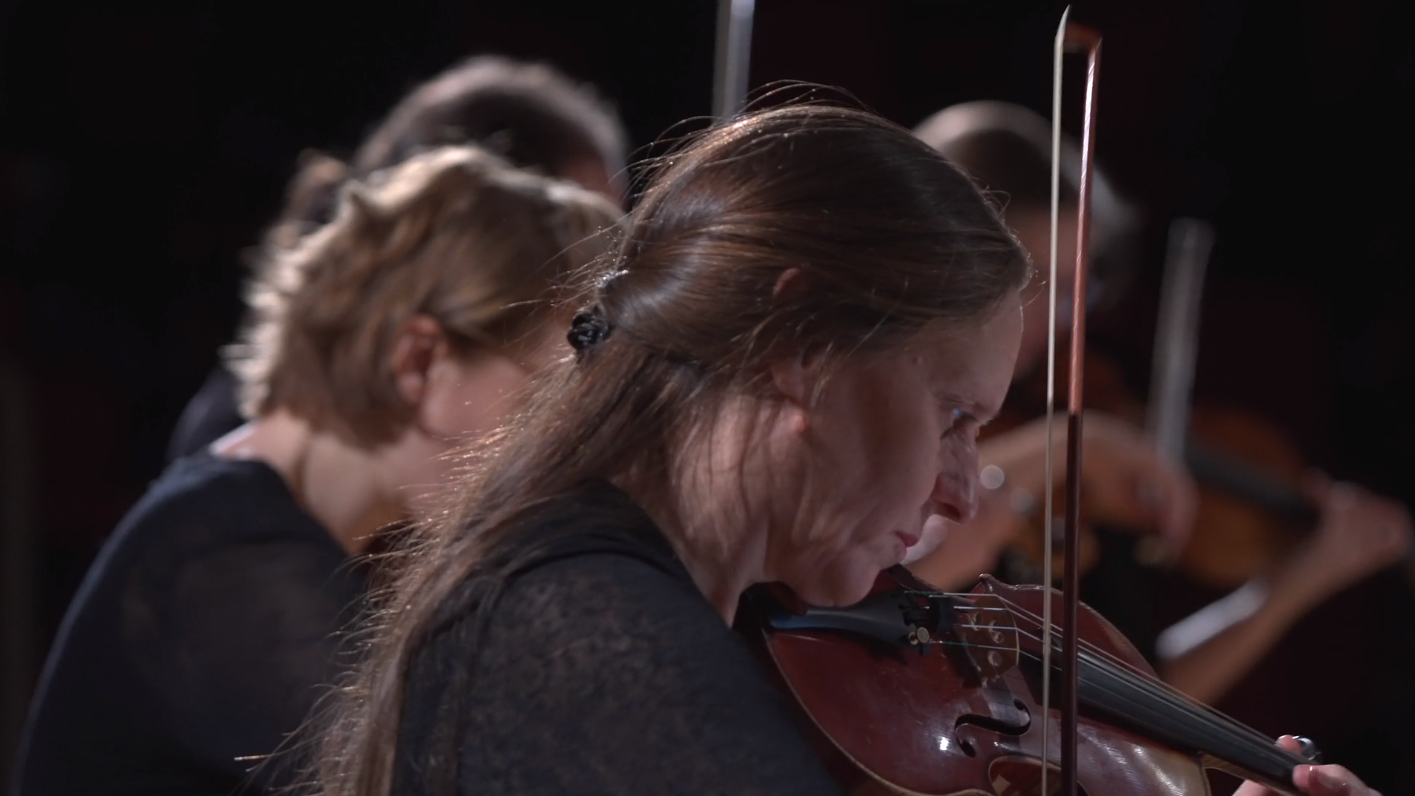
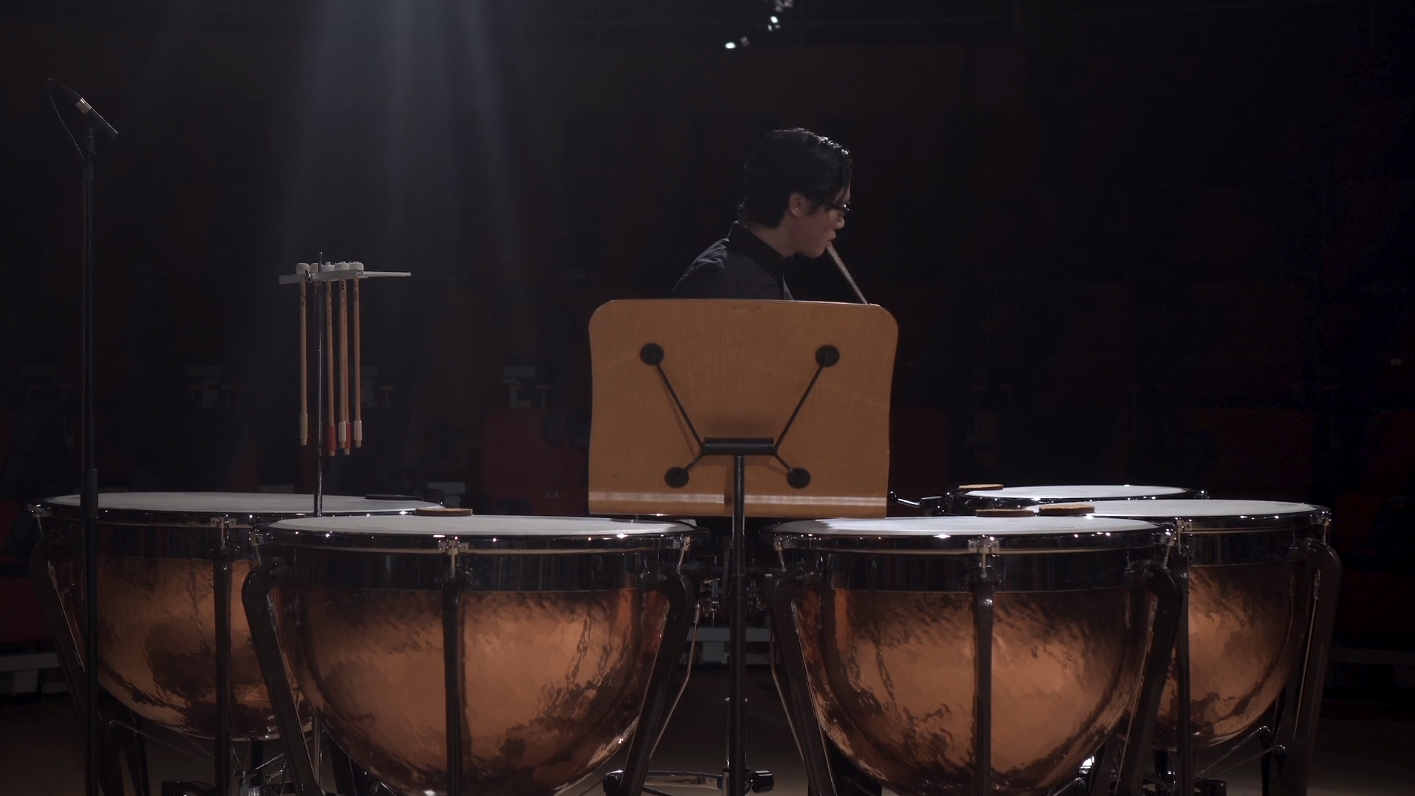
For too long, Galina Ustvolskaya’s work was unjustly neglected. Like so many of her peers in the Soviet Union, she had to bifurcate her creative work into “true” expressions that defied Party demands and commercial projects (film scores and the like) expressly written to bring in income. Yet even after many of those peers went on to be discovered in the West, Ustvolskaya long remained a relatively little-known cult figure.
Adding insult to injury is the tendency to associate her immediately with her Conservatory teacher Shostakovich and his music. A lifelong resident of Saint Petersburg, Ustvolskaya became the only female student when she first entered Shostakovich’s composition class in 1939. The war of course interrupted her studies, but she resumed them with Shostakovich later in the 1940s. For his part, Shostakovich admired her music so much that he even quoted one of her themes in his String Quartet No. 5 and in his settings of Michelangelo sonnets. So it is perhaps not surprising that Ustvolskaya, the centenary of whose birth was celebrated just last year, so firmly repudiated her former teacher (and rumored lover) following his death: “Never once … even during my studies at the Conservatory which I spent in his class, was Shostakovich’s music close to me. Nor was his personality,” she stated, “I bluntly refused to accept his music… Unfortunately, Shostakovich’s personality only deepened my negative attitude towards him.”
The Concerto for Piano, String Orchestra, and Timpani—the work that Ustvolskaya pointedly listed at the beginning of her approved catalogue of works (numbering 25 total)—dates from 1946, when she was completing her studies under Shostakovich. It served as her diploma composition, and soon she would embark on her own teaching career at the Conservatory.
Dedicated to Alexei Lyubimov, the Concerto had to wait until 1964 to be premiered (in Leningrad, with Pavel Serebryakov as the soloist and Arvīds Jansons conducting).
It is possible to detect an influence here of such figures as Bartók, Prokofiev, Stravinsky, and, yes, Shostakovich, yet already Ustvolskaya’s forceful personality emerges with mesmerizing impact. The Concerto is cast in a single movement, forged of sections that posit contrasts of texture, tempo, and affect. Her instrumentation in itself is striking. If the combination of piano and string orchestra conjures associations of a Neoclassical economy and eloquence, the prominent role of the timpani here creates a unique sound world. The timpanist serves as an alternate protagonist and a kind of antagonist to the solo piano role. Key elements of the unique musical idiom that Ustvolskaya would later develop are also already recognizable. These include an insistence on certain gestures, such as the rhythmic patterns so aggressively emphasized in this score, which can be exaggerated to intense extremes—as in the heavily accentuated short-long motto played at the very start by the piano, which defines much of the musical material. The aura of tragic earnestness is characteristic. An austerity in the string scoring enhances this pathos.
In the end, the Concerto traces an archetypically Romantic trajectory from darkness to light, finding its way from C minor to a transfigured coda in C major. Yet the music never sounds like any of the countless models for such a journey. Ustvolskaya’s eccentric scoring and unwavering seriousness evoke something more enigmatic. (Listen, in the final pages, for the D flats in the timpani that clash against the arrived-at C major.)
—Thomas May
Notes originally published in the Pierre Boulez Saal program book for the concert of the Ensemble Resonanz, Alexander Melnikov and Jeroen Berwaerts on January 27, 2020.
Piano
Alexander Melnikov
Oboes, Violins, Timpani
Ensemble Resonanz
Audio Producer
Julian Schwenkner
Sound engineer
Julian Schwenkner
Camera
Dirk Lütter (DOP)
Eric Lahmann
Malte Unger
Nao Aphischai Luu
Editor
Friedrich Gatz
Video Director
Friedrich Gatz
Producer
Oliver Becker, otbmedien
A production of the Pierre Boulez Saal.
„Oktett“ written by Galina Ustvolskaya © 1998 Musikverlag Hans Sikorski, Hamburg With kind permission of Musikverlag Hans Sikorski GmbH, Berlin